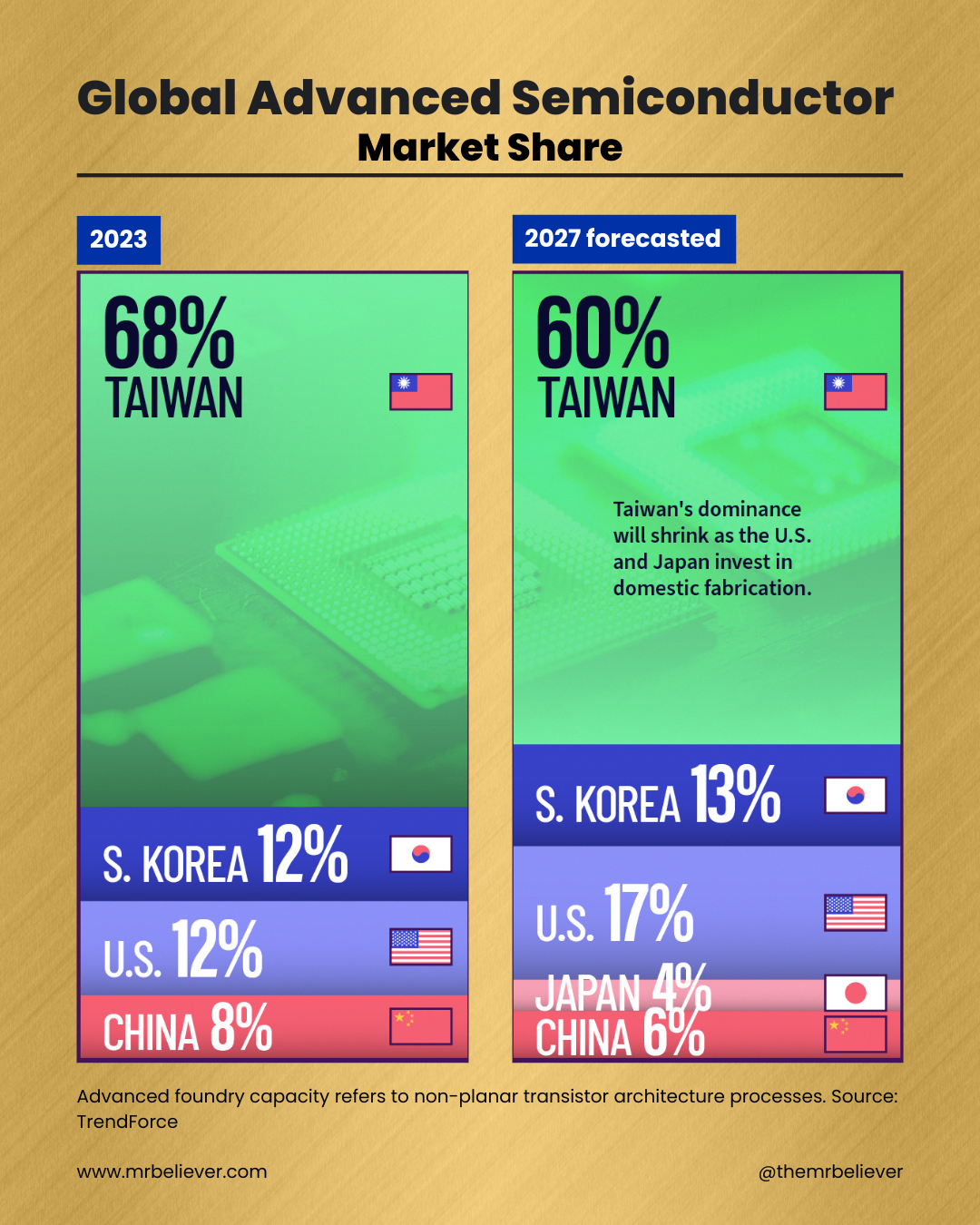In the dynamic realm of today's rapidly evolving technology, cutting-edge semiconductors serve as the catalyst for innovation across various sectors, fueling the functionality of devices ranging from smartphones to medical equipment.
In semiconductor manufacturing, Advanced processes typically involve nodes of ≤16/14 nanometers (nm). This reduction in transistor size enables manufacturers to densely pack them onto a single chip, resulting in heightened processing capabilities and operational efficiency.
For instance, the latest iPhone 15 Pro incorporates Apple's pioneering chip fabricated with a cutting-edge 3 nm process, while the Playstation 5 is equipped with a 6 nm chip, demonstrating the evolution of semiconductor technology.
On the other hand, Mature processes, characterized by nodes of 28 nm or larger, offer cost-effective manufacturing solutions. They find application in products that do not necessitate substantial computational power, such as household appliances and fitness trackers, providing efficient and economical solutions for various consumer needs.

With 68% of advanced foundry capacity currently under its belt, Taiwan remains the dominant force in semiconductor production. However, projections indicate a slight decline to 60% by 2027, attributed to the expansion of domestic capacity in the United States. Notably, Taiwanese giant TSMC stands as the primary producer of advanced semiconductors, capturing a commanding 60% share, equivalent to nearly $17 billion in revenue, in Q1 of 2023.
Japan's Rapidus Corp. has set its sights on producing 2 nm chips by 2027, signaling the country's entry into the competitive landscape of advanced semiconductor manufacturing.
The United States anticipates a significant increase in its share of advanced process capacity, projected to rise from 12% to 17% by 2027. Notably, a substantial portion of this expansion is expected to come from foreign companies operating within U.S. borders, including industry giants Samsung and TSMC.
In response to export controls imposed by the United States on advanced chip-making equipment, China is directing its efforts towards mature processes. This strategic shift is set to propel China's mature process capacity from 31% to 39% by 2027, highlighting a nuanced response to global market dynamics.
Source: Trendforce
Brought to you by MrBeliever.com